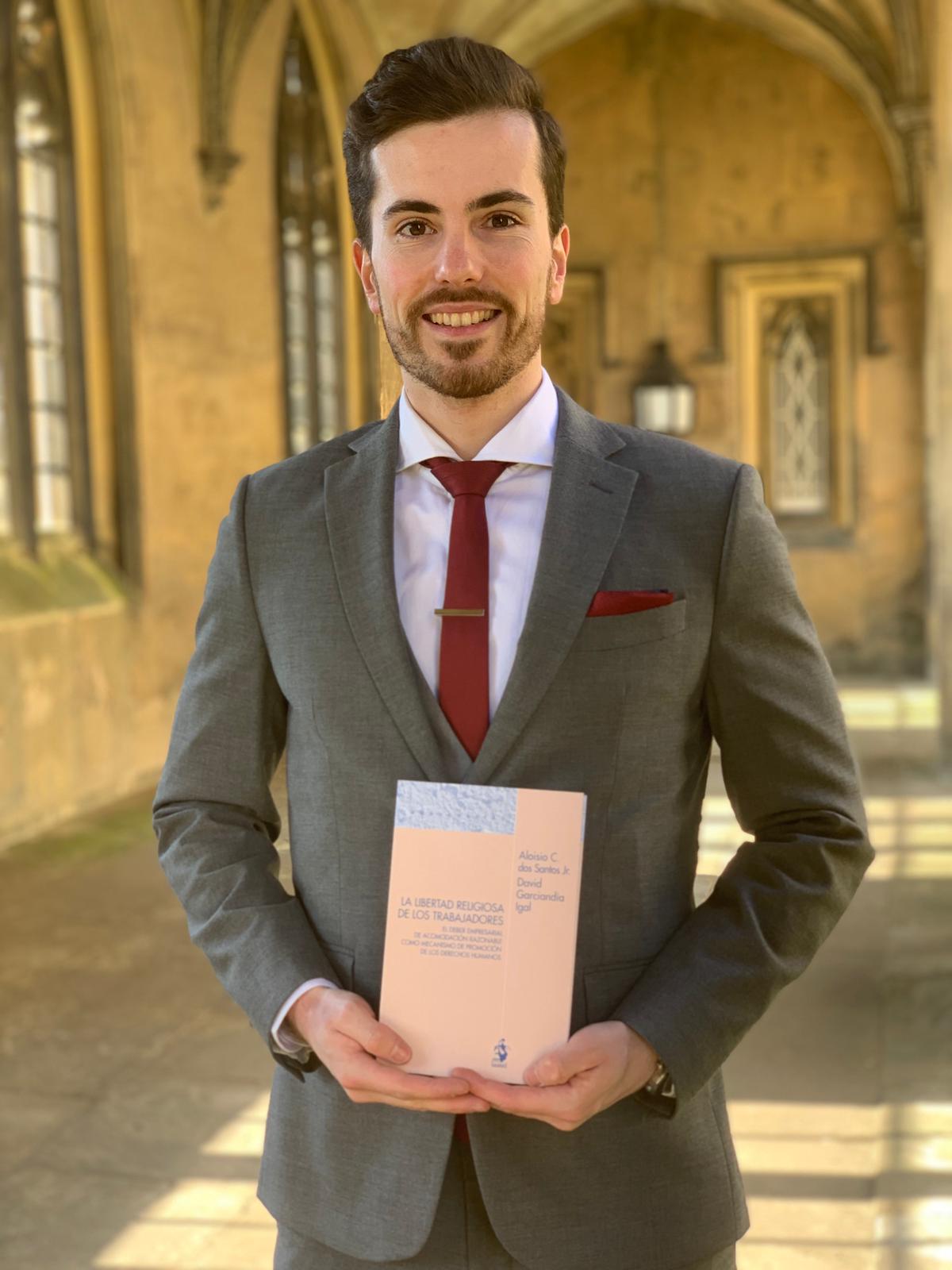Student calls for workers’ religious freedoms to be fully respected to help prevent divisions in society
"Fully guaranteed freedom of religion is needed to knot together societies again and fight polarisation"
The religious freedom of workers should be enshrined in EU and UK law to enhance human rights and social cohesion, according to a new book co-authored by a St John’s student.
David Garciandía Igal, who is doing an MPhil in Politics and International Studies, argues that religious conflicts in the workplace have intensified in recent decades in some nations due to religious pluralism – exacerbated by globalisation – and secularisation. He says employers that do not allow reasonable expression of religious freedom at work, by taking actions such as banning religious clothing or not allowing time for prayer without justification, can alienate workers and cause greater divisions in society.
The legal and scholarly case is made in The Religious Freedom of Workers: The Corporate Duty of Reasonable Accommodation as a Mechanism for the Promotion of Human Rights, which David has written with Dr Aloisio C. dos Santos Jr, a Brazilian judge. The pair were brought together to write the book when David was studying for his Bachelor degrees in Law and Business Administration at the Public University of Navarra in his native Spain.

David said: “My supervisor put us in contact when I was doing my dissertation because they knew the judge, who was also keen to write about the topic of freedom of religion of workers.
“The idea behind the book is to study the clash between freedom of religion of workers and the management of a corporation. In these situations the main question is, to what extent can workers exercise a freedom of religion in the workplace environment? For example, can a company force a Muslim to shave his beard, or ask a Christian to remove their crucifix necklace? Can a Catholic university fire a teacher for their private life, or a club ban a football player from celebrating a goal by doing the sign of the cross? These kinds of situations are more frequent than we think.”
In the book, which is in Spanish, the authors examine different scenarios and present optimal solutions to the conflicts that would safeguard workers’ human rights without causing undue hardship to employers. “Companies are more than just a platform to make money, they are also a platform where the worker develops their identity through the exercise of human rights,” said David. “Accommodating religious freedoms work in favour of the social integration of religious minorities, specifically in multicultural societies, since it avoids the worker having to make an extreme choice between religion or job, thus preventing their socio-economic exclusion.”
The law relating to this workplace duty already exists in the United States, under the Civil Rights Act of 1964, and in Canada. It is hoped it will one day be adopted by legislators in Spain and the rest of Europe, where it has previously received a ‘lukewarm reception’.
In Britain, the Equality Act 2010 allows for reasonable accommodation to be made to working practices and environment for employees with disabilities and it has been argued in recent years that this should be expanded to officially include religion and belief.

“In the long-term I would like to see this implemented in scholarship and in legal systems in Europe because in the 21st century when we have such multicultural societies, fully guaranteed freedom of religion is needed to knot together societies again and fight polarisation and divisions,” said David. “Anything we can do to bring together society is positive and, in this sense, the corporate duty is a very valuable thing for the integration of social minorities or religious minorities, a useful tool for promoting unity.”
David, who has a full scholarship from the Ramón Areces Foundation to study for his MPhil, is analysing the EU’s promotion of freedom of religion in China and plans to do a PhD in human rights next year. His debut book is aimed at legal scholars and political scientists, particularly those interested in human rights. He said: “I feel very proud of this book, it is a topic I feel passionate about.”
The Religious Freedom of Workers: The Corporate Duty of Reasonable Accommodation as a Mechanism for the Promotion of Human Rights is published by Iustel Publications in print and as an ebook. Copies are being made available in St John’s College Library and the Cambridge University Library.
Published: 17/3/21